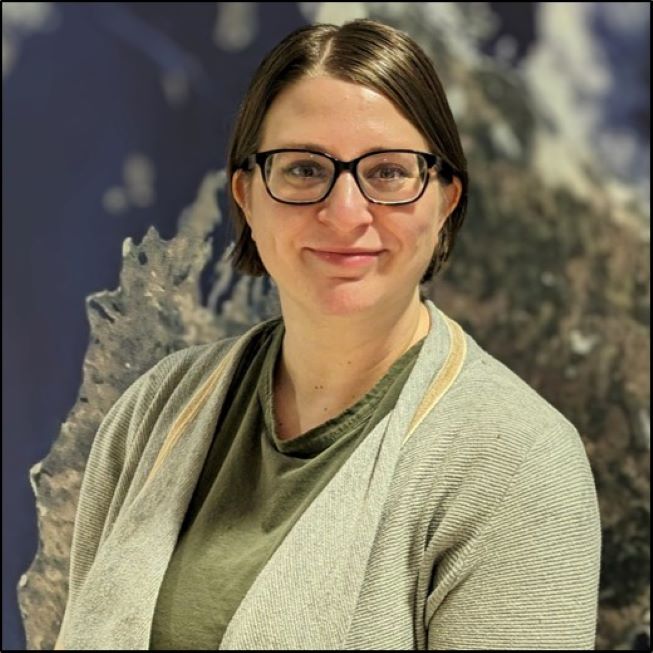Anna Boegehold
Algal Toxin & Ecology Research Specialist
CIGLR UM-SEAS
4840 South State Street
Ann Arbor, MI 48108
Dr. Anna Boegehold works with Dr. Casey Godwin and the Harmful Algal Bloom (HAB) monitoring team to study seasonal patterns in the ecology and toxins of the bloom. Anna uses historical and novel datasets to examine short-term environmental and physiological changes that can potentially impact the long-term trajectory of a bloom, such as fluctuations in biomass, toxin & metabolite concentrations, and other characteristics. Anna has a background in aquatic ecology and ecotoxicology and has interdisciplinary experience working with cyanobacteria and HABs. She is also interested in science communication and strives to connect her work with communities who are impacted by HABs and other environmental issues.
Education:
- Ph.D., Wayne State University, Biology, 2018
- B.S., Michigan State University, Fisheries and Wildlife, Spanish (minor), 2010
Research Interest/Area of Expertise:
- Limnology and Oceanography
- Ecology & Ecological Processes
- Environmental Pollution
- Science Communication and Education
Recent Presentations:
Boegehold, A.G. and Dugan N. 2021. How cyanobacteria work: Converting sunlight into usable energy. US EPA Small Drinking Water Systems Webinar Series: Harmful Algal Blooms and Algal Toxins.
Boegehold, A.G. 2020. Emerging contaminants and chemicals of concern in freshwater. Invited seminar talk at Wright State University, Dayton, OH.
Boegehold, A.G., Johnson, N.S., Kashian, D.R. 2018. A comparison of cyanobacteria sensitivity between Asian clams (Corbicula fluminea) and quagga mussels (Dreissena rostriformis bugensis). Society for Freshwater Science, Detroit, MI (oral presentation).
Boegehold, A.G. 2018. Engaging metro-Detroit students in freshwater science. Society for Freshwater Science, Detroit, MI (oral presentation).
Publications:
Boegehold, A.G. and Kashian D.R. Comparing stress tolerance between freshwater invaders with different life histories. 2021. Hydrobiologia. (DOI:10.1007/s10750-020-04511-8). [Altmetric Score]
Abernethy, E.F., Arismendi, I., Boegehold, A.G., Colon-Gaud, C., Cover, M.R., Larson, E.I., Moody, E.K., Penaluna, B.E., Shogren, A.J., Webster, A.J., and Woller-Skar, M.M. 2020. Diverse, equitable, and inclusive scientific societies: Progress and opportunities in the Society for Freshwater Science. Freshwater Science. 39:363-376. (DOI:10.1086/709129). [Altmetric Score]
Pedersen, A.F., Gopalakrishnan, K., Boegehold, A.G., Peraino, N.J., Westrick, J.A., and Kashian, D.R. 2020. Microplastic ingestion by quagga mussels, Dreissena bugensis, and its effects on physiological processes. Environmental Pollution. (DOI:10.1016/j.envpol.2020.113964). [Altmetric Score]
Boegehold, A.G., Johnson, N.S., and Kashian, D.R. Dreissenid (quagga and zebra mussel) veligers adversely affected by bloom forming cyanobacteria. 2019. Ecotoxicology and Environmental Safety. (DOI:10.1016/j.ecoenv.2019.109426). [Altmetric Score]
Boegehold, A.G., Alame, K.A., Johnson, N.S., and Kashian, D.R. 2019. Quagga mussel (Dreissena rostriformis bugensis) sperm motility is lowered by cyanobacteria. Environmental Toxicology and Chemistry. 38:368-374. (DOI:10.1002/etc.4305). [Altmetric Score]
Boegehold, A.G., Johnson, N.S., Ram, J.L., and Kashian, D.R. 2018. Cyanobacteria reduce quagga mussel (Dreissena rostriformis bugensis) spawning and fertilization success. Freshwater Science. 37:510-518. (DOI:10.1086/698353). [Altmetric Score]
